The Big Lebowski is one of the most quotable movies ever made and “The Dude abides” is one of the most memorable lines from the movie – but it has a deeper meaning to unpack. Although it bombed at the box office and received mixed reviews from contemporary critics, The Big Lebowski has since become one of the cornerstones of cult cinema. It was initially dismissed as a laid-back screwball comedy full of profanity, but subsequent analysis has found a lot of underlying themes – and the Biblical background of “The Dude abides” is a prime example.
The Coen Brothers’ stoner noir is full of hilarious lines that fans are still quoting today: “Shut the f*** up, Donny,” “Obviously, you’re not a golfer,” “Nobody f**** with the Jesus,” “That rug really tied the room together.” “The Dude abides,” spoken by Jeff “The Dude” Lebowski to the Stranger in the final scene of The Big Lebowski, is quoted more often than almost any other line in the film. The line has become synonymous with the character and the movie itself. But its meaning goes beyond a friendly platitude between bowling alley acquaintances.
What Does "The Dude Abides" Mean?
The Quote Has Biblical References
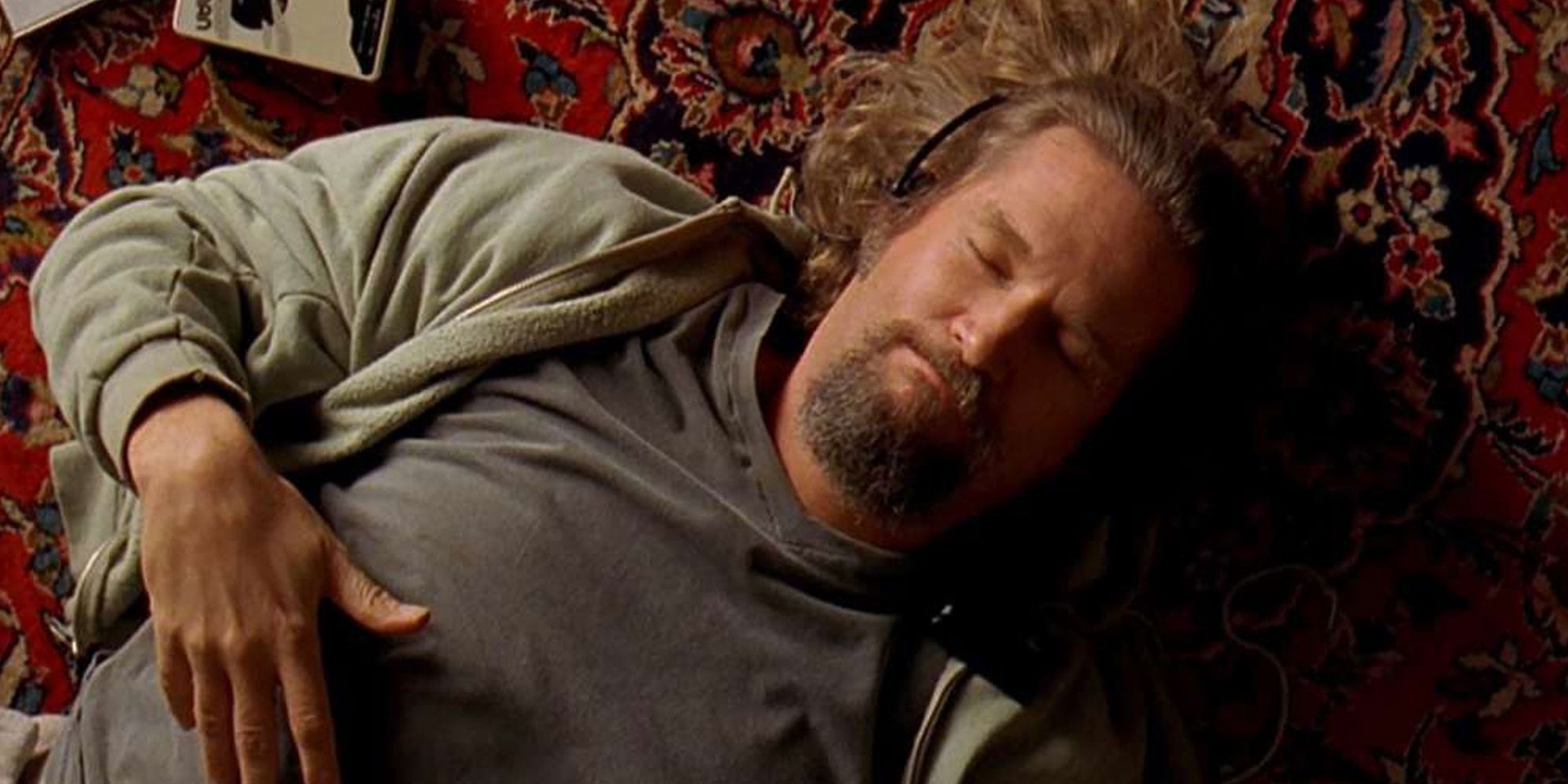
In the final scene of The Big Lebowski features the classic line "the Dude abides" as the Dude bumps into the film’s well-spoken narrator – identified only as “The Stranger” – drinking at the bar in the bowling alley. They briefly exchange pleasantries and the Stranger asks how the tournament is going. Before the Dude takes his order back over to Walter, one of the funniest characters in The Big Lebowski, the Stranger tells him, “Take it easy, Dude. I know that you will.”
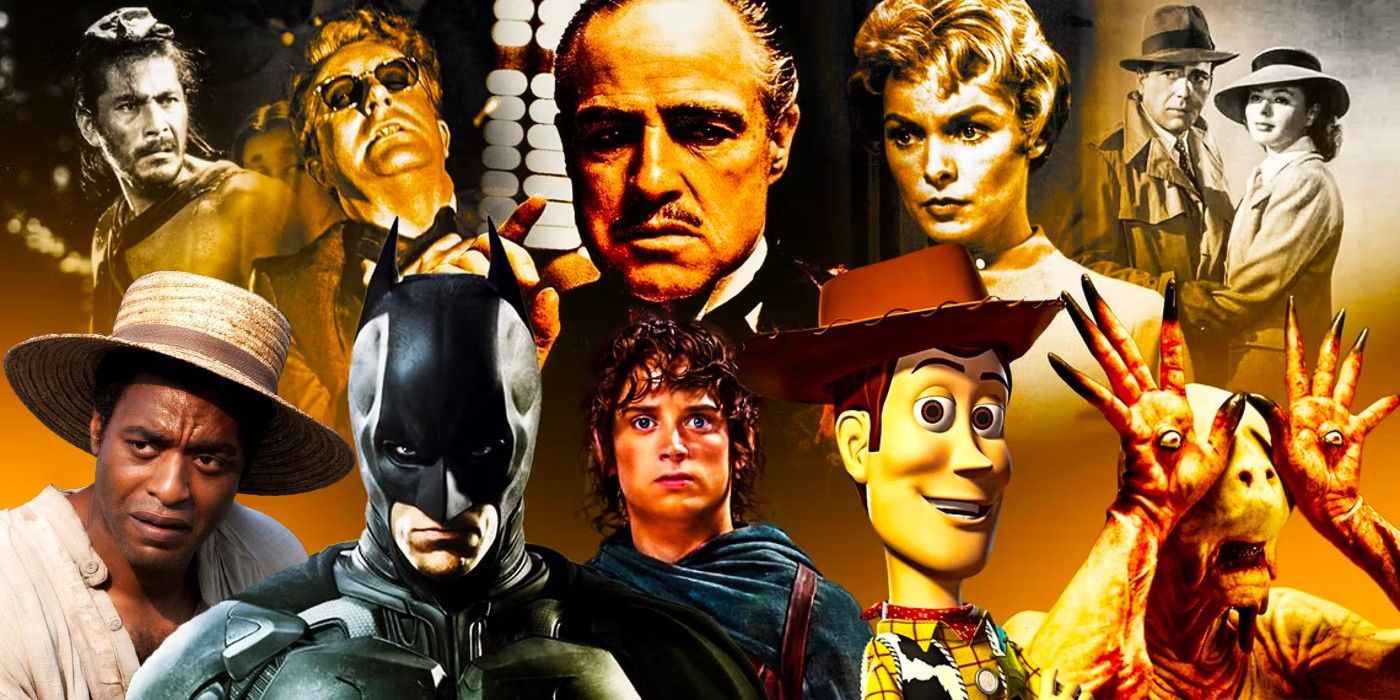
Related
The 60 Best Movies Of All Time
Screen Rant breaks down the best movies of all time, from old classics to modern masterpieces across multiple genres of cinema.
The Dude simply replies, “Yeah, well, the Dude abides.” This might just seem like a quirky way for the Dude to say goodbye, but it’s actually paraphrased from a line in the Bible. “The Dude abides” is an obscure reference to a passage from the Ecclesiastes scripture: “One generation goeth, and another generation cometh; but the earth abideth for ever.”
The Dude is saying that he’s more like the earth that kingdoms are built on than the conquerors who build them.
As kingdoms rise and fall, the ground they’re built on is the only constant. The Dude is saying that he’s more like the earth that kingdoms are built on than the conquerors who build them. No matter what happens – whatever kidnapping plots unfold, whosoever toe arrives in the mail, whichever ransoms get misplaced – the Dude will continue to hang around the bowling alley, taking it easy and drinking White Russians.
Why "The Dude Abides" Is The Dude's Last Line In The Big Lebowski
The Dude Never Changes Or Grows In The Movie's Narrative
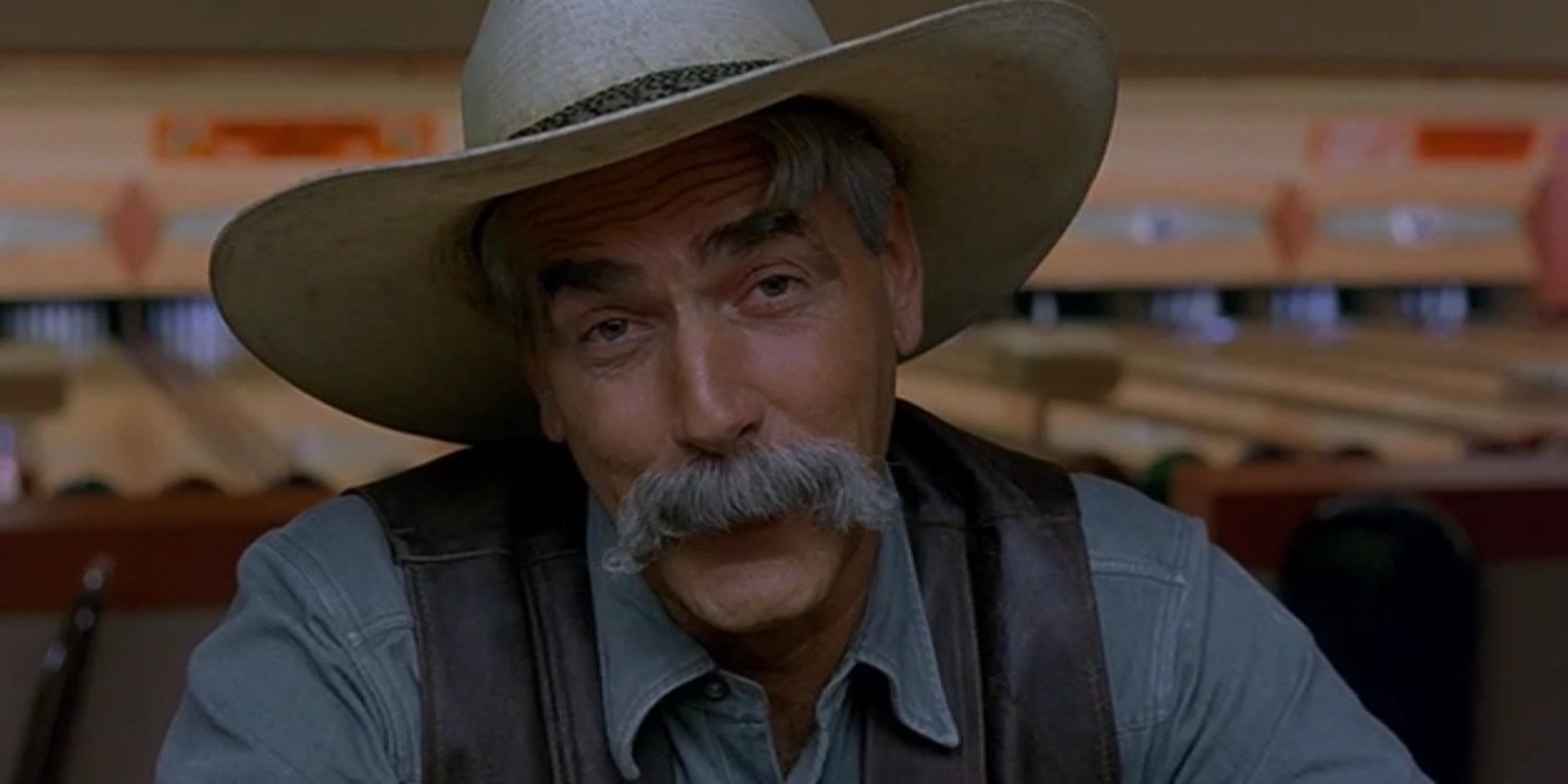
“The Dude abides” isn’t just one of the Dude’s most popular quotes; it’s his last line in the film. The Dude says this line in his final on-screen appearance to hammer home the fact that he’s the opposite of a typical movie protagonist. Most protagonists go on a life-changing journey and become a completely different person by the end of it. Luke Skywalker becomes the hero of the Rebellion; Chief Brody conquers his fear of the ocean; George Bailey realizes life is worth living.
But the Dude doesn’t change a bit throughout The Big Lebowski. After everything he’s been through, the Dude will resume his zen, laid-back, carefree lifestyle. After the Dude signs off with his iconic quote, Sam Elliott's The Big Lebowski Stranger explains, “The Dude abides. I take comfort in that. It’s good knowin’ he’s out there, the Dude, takin’ ‘er easy for all us sinners.”
There was no lesson for the Dude to learn or fear for him to conquer.
Everything that happened in the movie – all the violence and intimidation and threats of death – got in the way of what the Dude would rather be doing: nothing. There was no lesson for the Dude to learn or fear for him to conquer or profound realization for him to come to because he’s perfectly happy to just exist.
The Dude Abides Has Become Iconic
The Quote Has Gained A Life Of Its Own
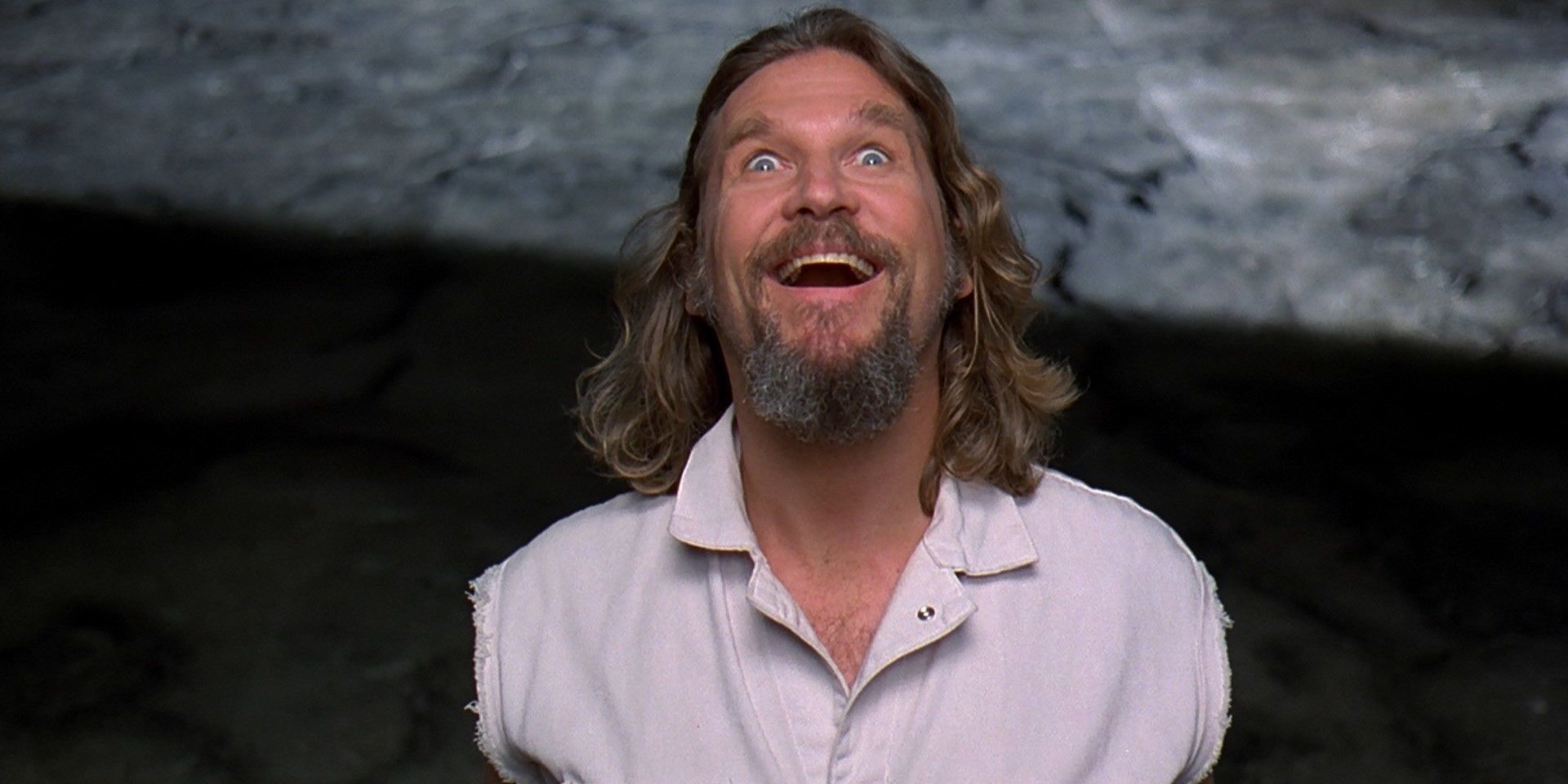
"The Dude abides" is a satisfying and oddly thought-provoking message to leave at the end of The Big Lebowski. As with many of the things associated with the movie, this phrase has become more popular over the years, finding its way into pop culture and beyond. The Big Lebowski actor Jeff Bridges has even embraced the love of the message, naming his band Jeff Bridges & The Abiders. "The Dude abides" can be found on endless T-shirts and merchandise for fans of the movie.
Jeff Bridges & The Abiders is a band that is a little country, a little folk, and a little rock.
The message itself has inspired books and teachings based on The Dude's lifestyle. Though he is far from the most ambitious character, The Dude has built a strong following as a Zen master thanks to his philosophy of life. "The Dude abides" as well as another memorable like "That's just like your opinion man," suggests someone at peace with the world around them. Regardless if that was the intention of The Big Lebowski, The Dude and his abiding ways still strike a chord with audiences to this day.
The Dude Abides Is A Perfect Example Of Why The Coen Brothers Are So Good
The Coen Brothers Create Memorable Moments In All Their Movies
The fact that the Coen Brothers came up with "The Dude Abides" to simply say that The Dude never changed while pulling it from the Bible shows the brilliance and creativity of the brothers. This is something that they have done throughout their career, sprinkling things into many of their movies that ended up iconic moments in film history. All anyone has to do is look at their character names - Marge Gunderson, Ulysses Everett McGill, Larry Gopnik, Anton Chigurh - to show their love at playing with words.
The serial killer Anton Chigurh in No Country for Old Men is based on the character of Death.
They also have added many things into their movies from classical sources. Having a line from The Dude tie into the Bible is similar to many other film's influences. The serial killer Anton Chigurh in No Country for Old Men is based on the character of Death from Ingmar Bergman's The Seventh Seal, while the entire movie O Brother, Where Art Thou? is based on the classic Homer epic poem The Odyssey. The brothers' extensive knowledge of literary and cinematic history flows throughout their films.
It is also important to see that they love wordplay, and that is why so many of their films remain instantly quotable. Most of the characters in their films are not the brightest, but that often makes their quotes shockingly repeatable because of, often, something they say that even the characters don't understand. Look at Raising Arizona, where Nic Cage's "Hi" McDunnough has countless quotable sayings, many of which his character likely made up on the spot.
The Big Lebowski is a good example of a film where the main protagonist is just along for the ride, and this quote is perfect in explaining that entire phenomenon. The Coen brothers use their mastery at wordplay to do this in many movies, whether it is Barton FInk's breakdown in the movie of the same name or Jerry Lundegaard's fall from grace in Fargo. It is what makes their movies so beloved and often repeatable.
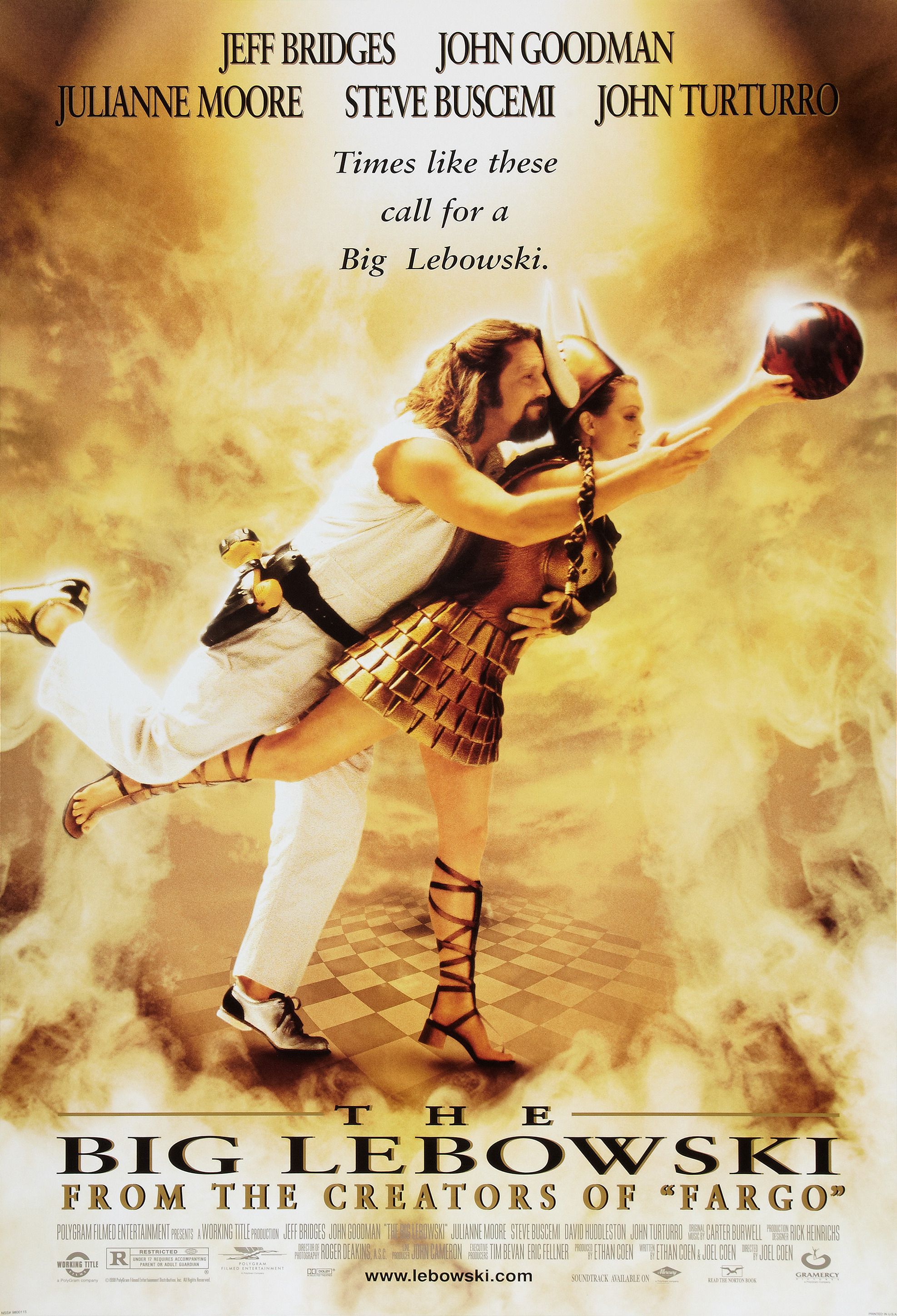
One of Joel and Ethan Coen's most successful crime comedies, The Big Lebowski follows Jeffrey "The Dude" Lebowski (Jeff Bridges) after he is assaulted in a case of mistaken identity. After becoming tangled with the millionaire who shares his name, the Dude is tasked with delivering a ransom in order to save Lebowski's wife from a group of hardened criminals. The Dude is joined by his bowling buddies Walter (John Goodman) and Donny (Steve Buscemi), who complicate Lebowski's plans.
Director Joel Coen , Ethan Coen
Release Date March 6, 1998
Distributor(s) Gramercy Pictures
Runtime 117 Minutes



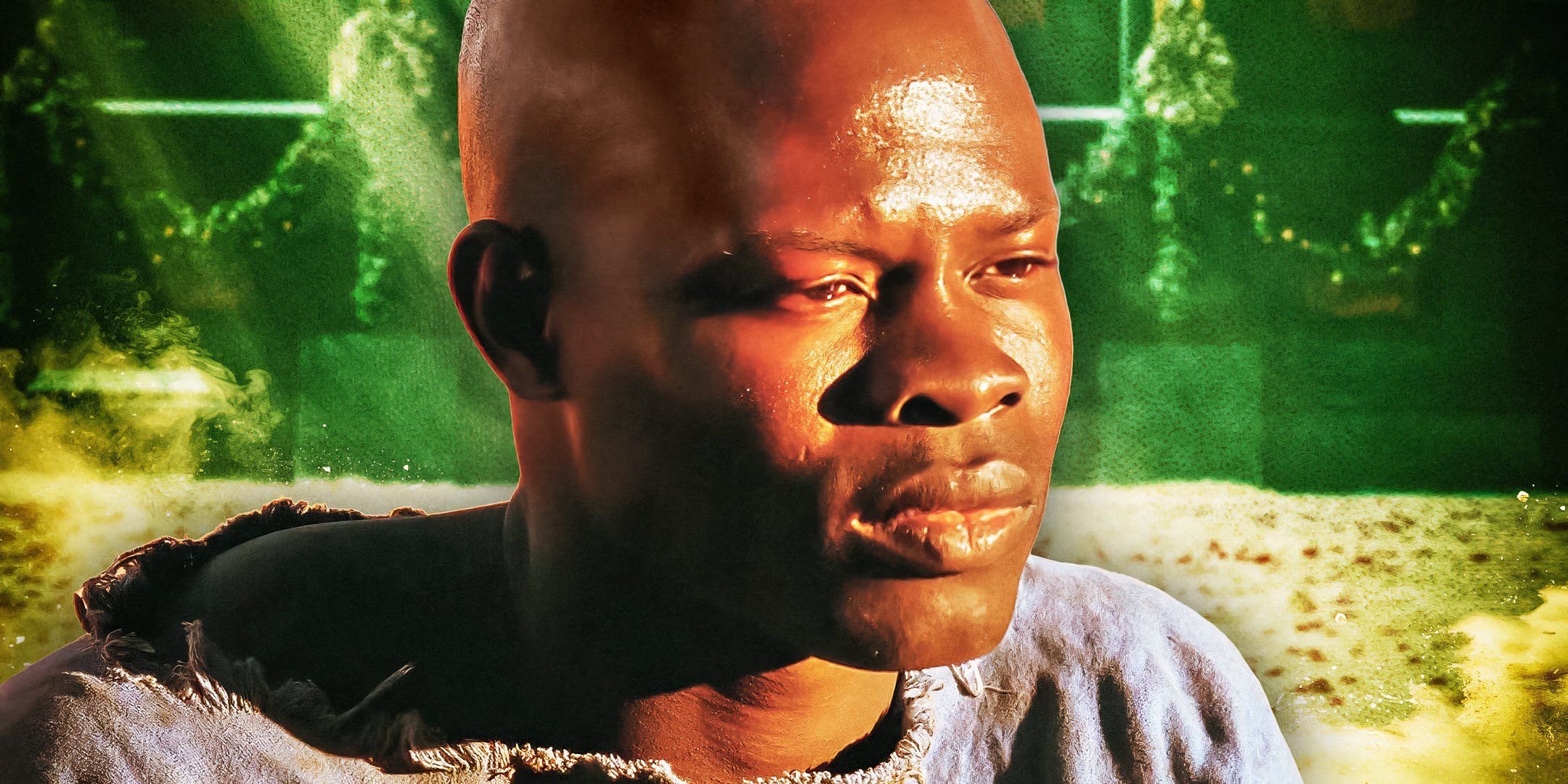





 English (US) ·
English (US) ·